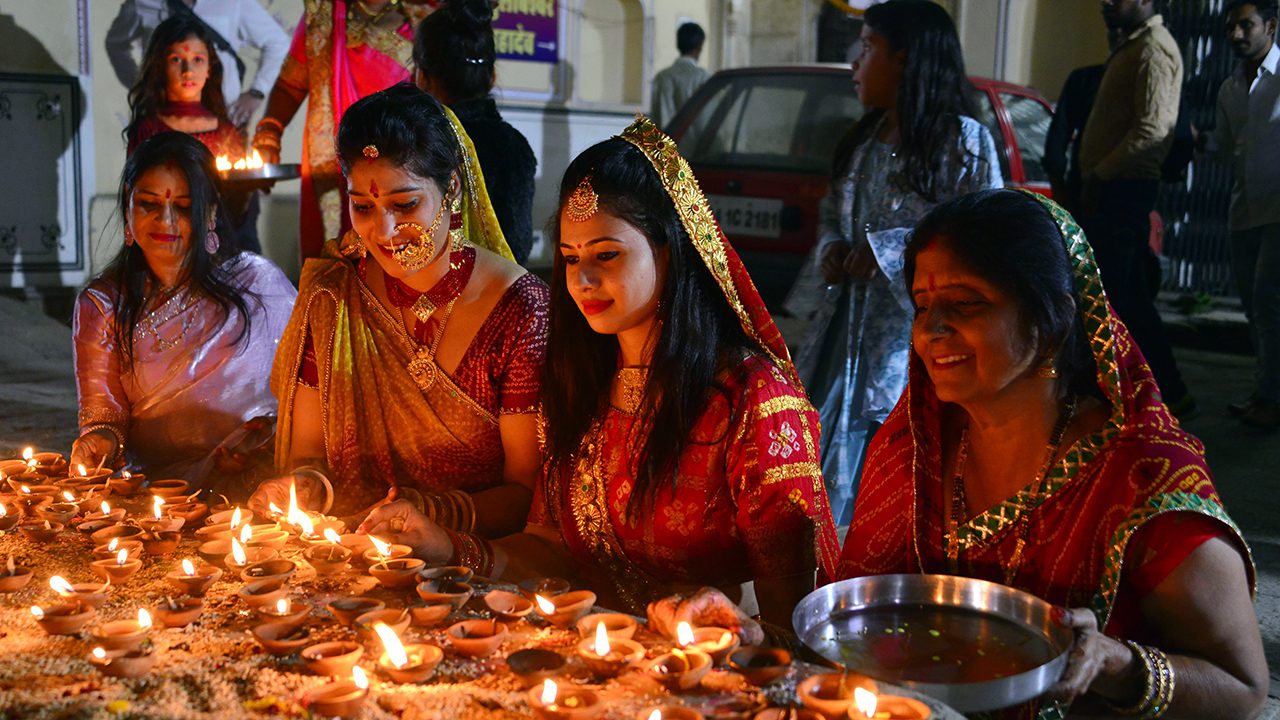This content discusses 10 interesting beliefs and rituals in Hinduism. It begins by explaining the belief in reincarnation, where the soul is reborn in new forms after death. It then explores the concept of karma, where actions have consequences that determine future lives. The content also delves into the worship of multiple deities in Hinduism, the social structure of the caste system, and the practice of yoga and meditation for spiritual enlightenment. It discusses the significance of sacred rivers and pilgrimages, the celebration of various festivals, and the principle of nonviolence known as Ahimsa. The content also touches on the worship of cows and various sacraments called samskaras that mark important milestones in Hindu life.
10 Interesting Beliefs and Rituals in Hinduism
1. Reincarnation
Hinduism holds the belief in reincarnation, which is the concept that after death, the soul is reborn in another form. This cycle of birth, death, and rebirth continues until the soul achieves moksha, ultimate liberation from the cycle.
2. Karma
Hindus believe in the law of karma, which states that every action has consequences. Good actions lead to positive outcomes, while bad actions result in negative consequences. Karma plays a significant role in determining one’s future lives.
3. Deities and Polytheism
Hinduism is known for its vast pantheon of gods and goddesses. Hindus worship multiple deities, each representing various aspects of life. While some Hindus primarily worship one god, others choose to devote themselves to several deities.
4. Caste System
The caste system is a social structure that originated in Hinduism, dividing society into distinct groups based on occupation and social status. Although it has evolved over time, its influence can still be observed in some parts of Indian society.
5. Yoga and Meditation
Hinduism has greatly contributed to the practice of yoga and meditation. Yoga involves physical and mental disciplines aimed at attaining spiritual enlightenment and self-realization. Meditation is a crucial part of this practice.
6. Sacred Rivers and Pilgrimages
Hindus consider rivers, such as the Ganges, Yamuna, and Saraswati, as sacred entities. Pilgrimages to these rivers and other holy sites hold great importance for Hindus, as they believe that bathing in these waters can cleanse them of sins and bring spiritual benefits.
7. Festivals
Hinduism celebrates a multitude of festivals throughout the year, each with its unique customs and rituals. Diwali, Holi, Navaratri, and Ganesh Chaturthi are some of the most widely celebrated festivals, showcasing vibrant colors, music, dance, and religious ceremonies.
8. Ahimsa (Nonviolence)
Ahimsa refers to the principle of nonviolence and compassion towards all living beings. This belief promotes respect for all life forms and encourages Hindus to avoid causing harm to others. Ahimsa is heavily influenced by the teachings of Mahatma Gandhi.
9. Cow Worship
Cows hold a special place in Hinduism and are considered sacred animals. They are revered for their gentle nature and nourishing properties. Many Hindus believe that cow worship brings blessings and spiritual purity.
10. Samskaras (Sacraments)
Hinduism comprises various sacraments called samskaras, marking important milestones in an individual’s life. These rituals include birth ceremonies, initiation rituals, marriage ceremonies, and funeral rites. Each samskara carries deep symbolic and spiritual significance.
